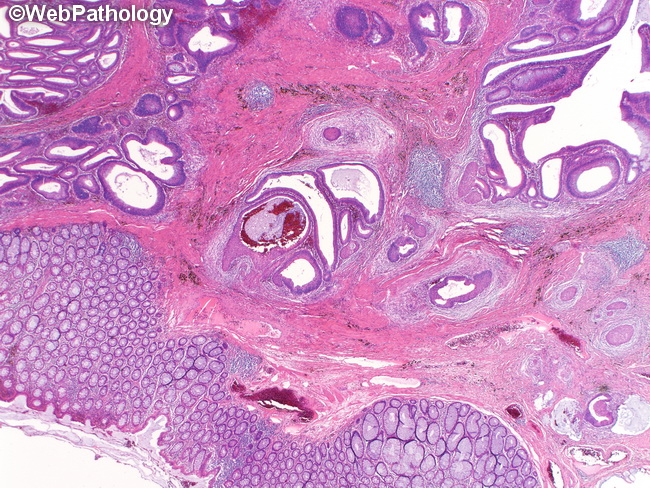Tubular Adenoma : Pseudoinvasion


Comments:
Pseudoinvasion in an adenomatous polyp refers to the presence of dysplastic glands beneath the muscularis mucosa mimicking invasion of submucosa. This feature is quite common in large pedunculated polyps, especially in sigmoid colon. Pseudoinvasion is likely caused by displacement of adenomatous epithelium into the submucosa through weakened foci of muscularis mucosae where the blood vessels penetrate. In this image, polyp surface is on the top. Normal uninvolved mucosa at the bottom of the image represents base of the polyp. The adenomatous glands in the center of the image represent a focus of pseudoinvasion. Features favoring pseudoinvasion over true invasion include: “invading” glands appear similar to those on the surface; the glands are surrounded by loose stroma of lamina propria and fragmented muscularis mucosae bundles, but there is no desmoplastic reaction; presence of hemosiderin deposits around dysplastic glands.



